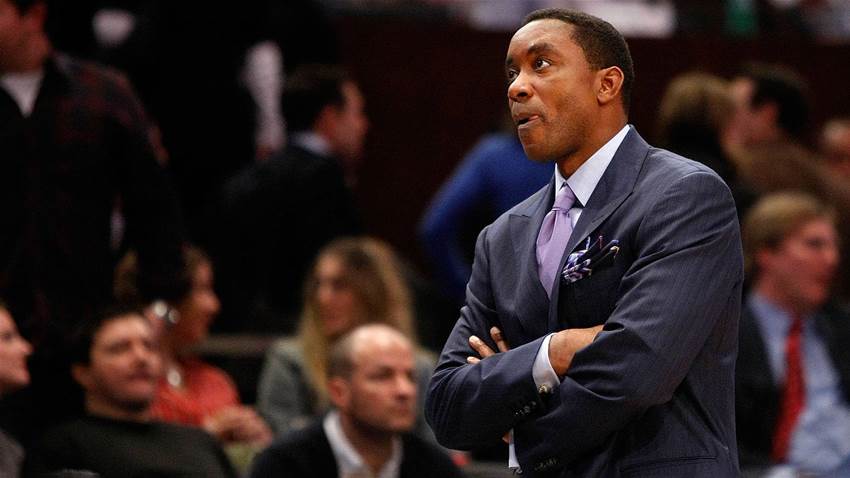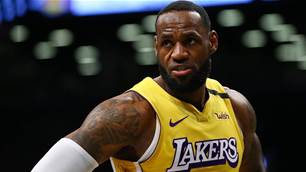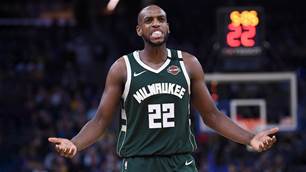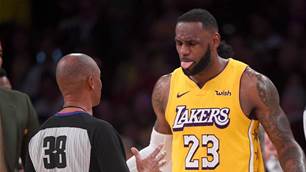After a short hiatus, the NBA All Alphabet League returns!
Small Forward – Jack Twyman
As well as being a great player, Jack Twyman was one of the true humanitarians of the league.
In one of the most heart wrenching/heart warming tales in NBA folklore, at the age of 23 Twyman became the legal guardian for his All Star teammate Maurice Stokes in 1958, after Stokes had suffered severe head trauma from a hard in game fall, causing total paralysis. Twyman organized charity basketball games – which later evolved into a pro/am golf event - to raise money for Stokes medical expenses. He cared for his friend until Stokes death in 1970. The NBA’s Twyman-Stokes teammate of the Year award is named in honor of the pair.
On the floor, Twyman was a star in his own right. The 6’6” swingman spent 11 years in the NBA, all as a member of the Royals, moving with them from Rochester to Cincinnati. His career averages of 19.2 points and 6.6 boards per game don’t do the high scoring forward justice. Through a 4 year prime, Twyman put up a nightly 26 points per game. In the 1960 season he, alongside Wilt Chamberlain, became the first NBA players to average 30 points per game in a season.
The 6 time All Star and 2 time All NBA selection went on to be a respected broadcaster through the 1970’s and 80’s, calling many NBA Finals series as the colour commentator on ABC.
Power Forward – Rudy Tomjanovich
Rockets great Rudy Tomjanovich has led a long a varied life in NBA circles.
Rudy T spent his entire 11 seasons as a player with the Rockets, starting in San Diego in the 1971 season and moving with the team to Houston. The 6’8” combo forward was a consistently high producer for the Rockets, averaging 17.4 points and 8.4 rebounds, on his way to earning 5 All Star berths.
Tomjanovich’s game was stereotypical of a combo forward of the era. He was too big for small forwards to handle on the low block but switch a bigger player onto him and he would step outside to shoot his excellent jump shot or blow by the lumbering power forward.
The unfortunate side to Tomjanovich’s playing career, is that he is perhaps best remembered as the unlucky man to headbutt Kermit Washington’s fist in late 1977. Stepping in to play peace keeper in a scuffle between the Lakers Washington and Rockets centre Kevin Kunnert (the careers of Washington and Kunnert would intertwine an incredible number of times post fight), Tomjanovich was caught unawares by Washington’s right fist, leaving him with head and spinal injuries – Rudy later said he could literally taste his own spinal fluid. He would spend 5 months in and out of hospital before finally stepping back onto the court – he picked up where he left off, playing his final All Star the next season.
Post retirement, Tomjanovich spent time as a scout for the Rockets before becoming an assistant coach. When reigning NBA Coach of the Year Don Chaney resigned midway through the 1992 season, Tomjanovich, in one of the most inspired internal promotions in NBA history, stepped into the big chair.
Tomjanovich, of course, led the Rockets to back to back titles during Michael Jordan’s sabbatical. The 1995 team – who won from the 6th seed - remain the lowest ever seed to win a title under the 16 team playoff format. They are also the only team to defeat the 4 best regular season teams in a single playoff run. As Rudy himself said:
Centre – Nate Thurmond
Despite being a Hall of Famer, Nate the Great remains one of the most underrated big men ever to play NBA basketball.
Thurmond played the bulk of his 14 season career in the Bay area for the Warriors, where he was named to the All Star team on 7 occasions, as well as earning 5 All Defensive awards – he undoubtedly would have earned more had the award existed before his 6th professional season.
Thurmond averaged 17.4 points in his 11 seasons as a Warrior, but it was defense where he made his name. As a rookie, he averaged double figure rebounds whilst playing as the backup to Wilt Chamberlain. With Wilt traded at the conclusion of the 1964 season, Thurmond took centre stage, averaging 16.5 points and 18.1 boards to win his first All Star nod.
A ferocious rebounder, Thurmond pulled down 16.9 rebounds in his Warriors career, and despite a fairly long tail to his career, still averaged 15 boards per game over the course of his playing days. His career high of 42 rebounds has been bettered by only Chamberlain and Bill Russell.
Blocked shots were not recorded until the 1974 season – Thurmond’s age 32 campaign. He blocked 2.9 shots per contest that season. It’s said that Thurmond would have averaged about 4 blocks per game, if they were recorded through his prime. Standing 6’11”, Thurmond wasn’t a particularly great leaper, but he possessed a fast jump, which combined with his speed and elite anticipation, made him a fearsome rim protector. No lesser an adversary that Kareem Abdul-Jabbar called Thurmond the toughest defender he’d ever faced.
Thurmond’s post Warriors career with the Bulls and Cavaliers wasn’t as prosperous, as age started to take its toll. He did have one trick left up his sleeve. In his first game as a Chicago Bull, Thurmond stuffed the stat sheet with 22 points, 14 rebounds, 13 assists and 12 blocks: the NBA’s first quadruple-double.















